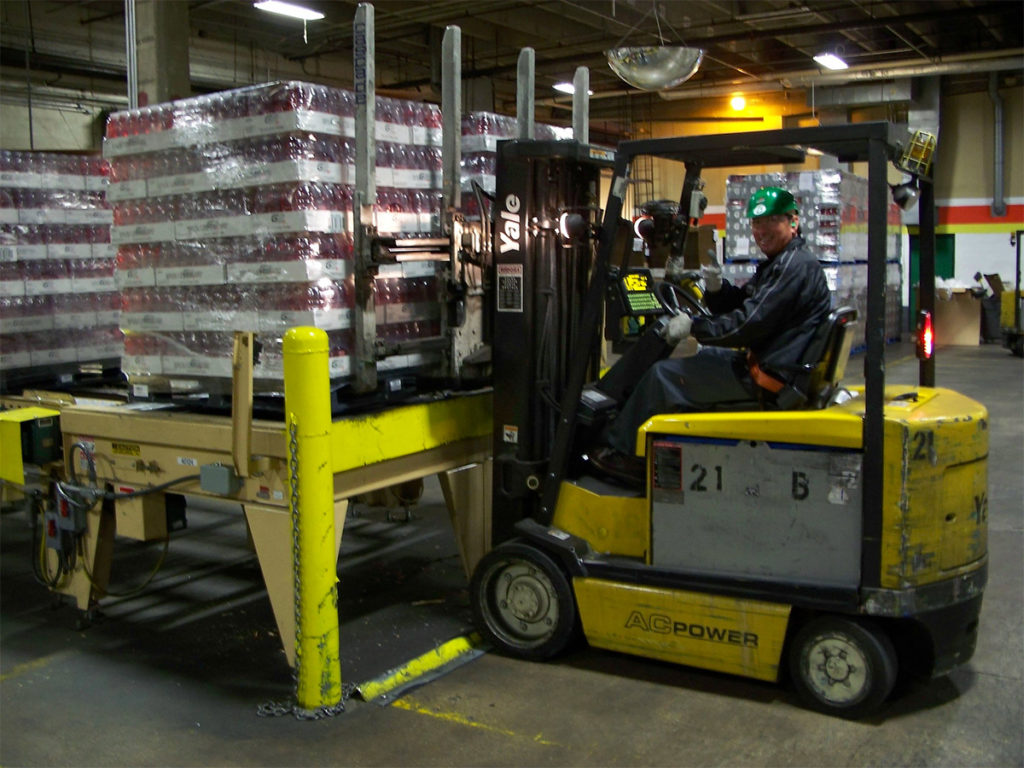H-E-B Pallet Requirements
H-E-B is a grocery retailer whose operations are largely based in the state of Texas, with a few locations in Northern Mexico. The company enjoys revenues of over $25 billion, and it is one of the largest private retail companies in the U.S. The retail chain also developed a reputation for community support and foresight when it provided relief after Hurricane Harvey and quick action at the start of the coronavirus pandemic. Grocery suppliers hoping to do business with any of H-E-B’s hundreds of stores in the Lone Star State will need to be familiar with H-E-B pallet requirements.

Food and Non-Food H-E-B Pallet Requirements
H-E-B sets specific criteria for what is considered an acceptable pallet. In general, pallets must be 48-by-40-inch Grocery Manufacturers Association (GMA) specification hardwood pallets that allow four-way entry. H-E-B considers the following unacceptable in any pallet:
- Exposed nails
- Exceptional levels of dirt or soilage
- Stains from petroleum or unknown products
- Pallets that are intended for pesticide use only and marked as such
- Pallet overhang in which products extend past the edge of the pallet
H-E-B also sets requirements for the individual components of the pallet as listed below. Suppliers are encouraged to confirm this information directly with H-E-B to ensure it includes the latest updates.
Deck Boards:
- H-E-B pallet deck boards must be a minimum of a ½-inch thick but not greater than ¾-inch thick. There must also be no more than an ⅛-inch variance in width in these boards across the pallet.
- Top and bottom deck end boards must be a minimum of 5 inches wide.
- Only three boards of softwood are allowed per pallet.
- The maximum space allowed between top boards is 3 inches; 4 inches are allowed between bottom boards.
Stringers:
- Stringers must be at least 1 and 5/16 inch wide, and at least 3 and ½ inches tall.
- All stringers must be made of hardwood.
- No broken stringers are accepted.
- No companion stringers, in which an additional board is placed alongside an existing broken stringer to patch it, are acceptable.
- A maximum of four metal repair plates are allowable per pallet, and no plates patching vertical splits are allowed.
Cutouts:
- Cutouts for forks must be a minimum of 8 inches wide.
- Cutouts cannot be wider than 10 inches.
- They must be a minimum of 1 and a ¼ inch in height.
- No cutout should be taller than 2 inches.
H-E-B pallet requirements are less strict in some ways than other grocery stores. For instance, their willingness to accept pallets that have been repaired with plates is somewhat unusual (many chains, including Walmart, Sam’s Club, and Publix, will not accept pallets with metal plate patches). However, H-E-B’s exacting specification for hardwood stringers only and their firm limit on the use of softwood components for the pallet is very rigorous.
H-E-B does accept pooled pallets from national pallet rental companies. Most pooled pallets are wood block pallets, but one pallet pooling provider, iGPS, specializes in plastic pallets. These plastic rental pallets may do a better job of meeting an H-E-B vendor’s needs than either stringer or wood block pallets.

Why Plastic Pallets Are Better Than Wood
Plastic pallets are very different from wood pallets. Rather than individual boards nailed together, they have a unitized grid-type deck across the top of the pallet, so deck board spacing isn’t an issue. This means there is no gap that might cause product loss or damage when products fall between the gap. Plastic pallets are also sturdier than either wood stringer or block pallets, reducing the need for repairs. There will never be any companion stringers or metal plates on a plastic pallet. There are many other advantages to iGPS plastic pallets, such as:
| Unitized Construction | iGPS pallets have a fastener-free construction that doesn’t use nails or screws. There is no danger of the exposed nails that H-E-B pallet requirements explicitly forbid. |
| High Load Capacity | iGPS pallets can support 5,000 pounds of dynamic load capacity. This high strength means that most loads can be transported without concern about damage to the pallet or products. |
| Greater Sustainability | Plastic pallets from iGPS have cradle-to-cradle recyclability. This extends the useful lifespan of high-quality HDPE plastic. |
| Lightweight Construction | iGPS plastic pallets are strong without being heavy. Pooled plastic pallets from iGPS weigh less than 50 pounds, reducing wear and tear on equipment and helping to prevent employee injuries from lifting and stacking pallets. |
| Hygienic | Plastic pallets can be easily cleaned of dirt, product spills, and other liquids, making it simple to avoid shipping an excessively dirty or stained pallet to a retailer. |
Put simply, plastic pallets are stronger, cleaner, and more sustainable than wood pallets. Renting pooled heavy-duty plastic pallets from iGPS is an easy pallet management solution, as iGPS is a widely accepted pallet pooling partner across the U.S. Vendors can easily meet H-E-B pallet requirements by switching to plastic rental pallets from iGPS.